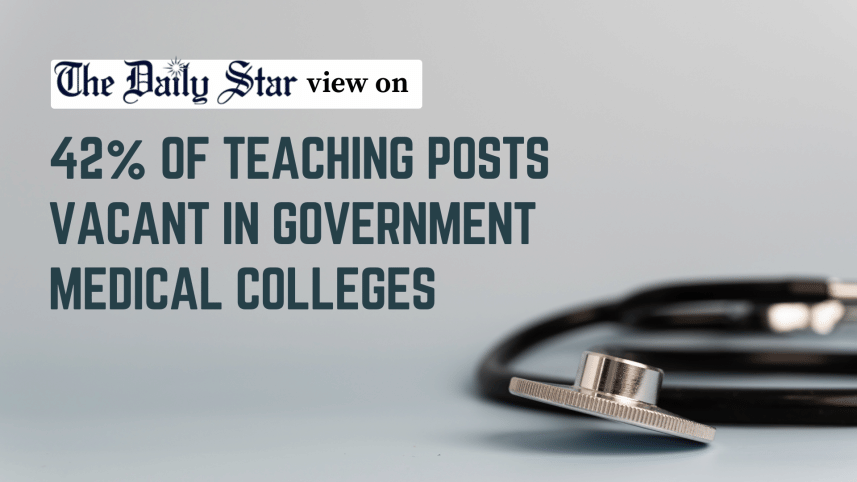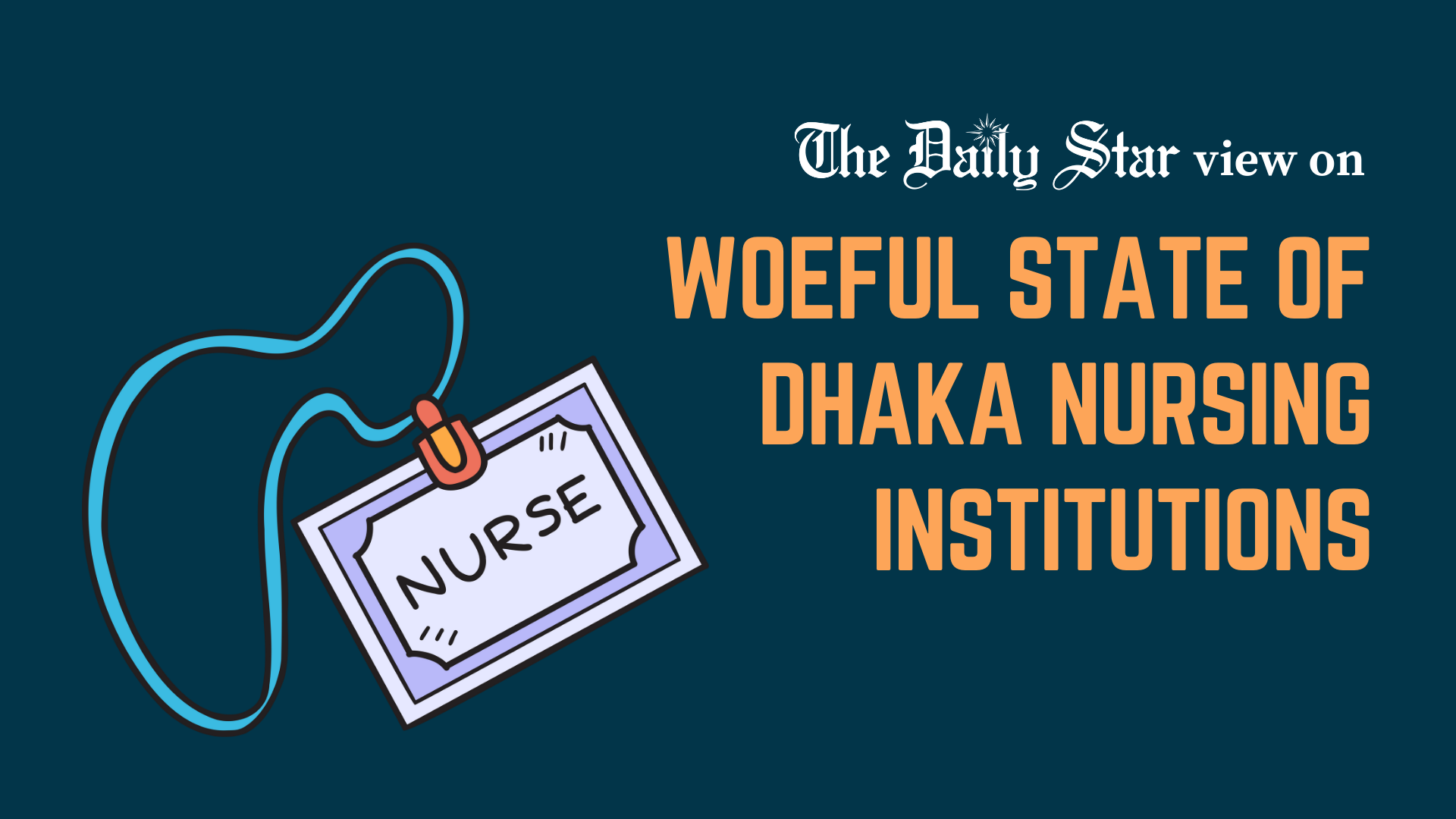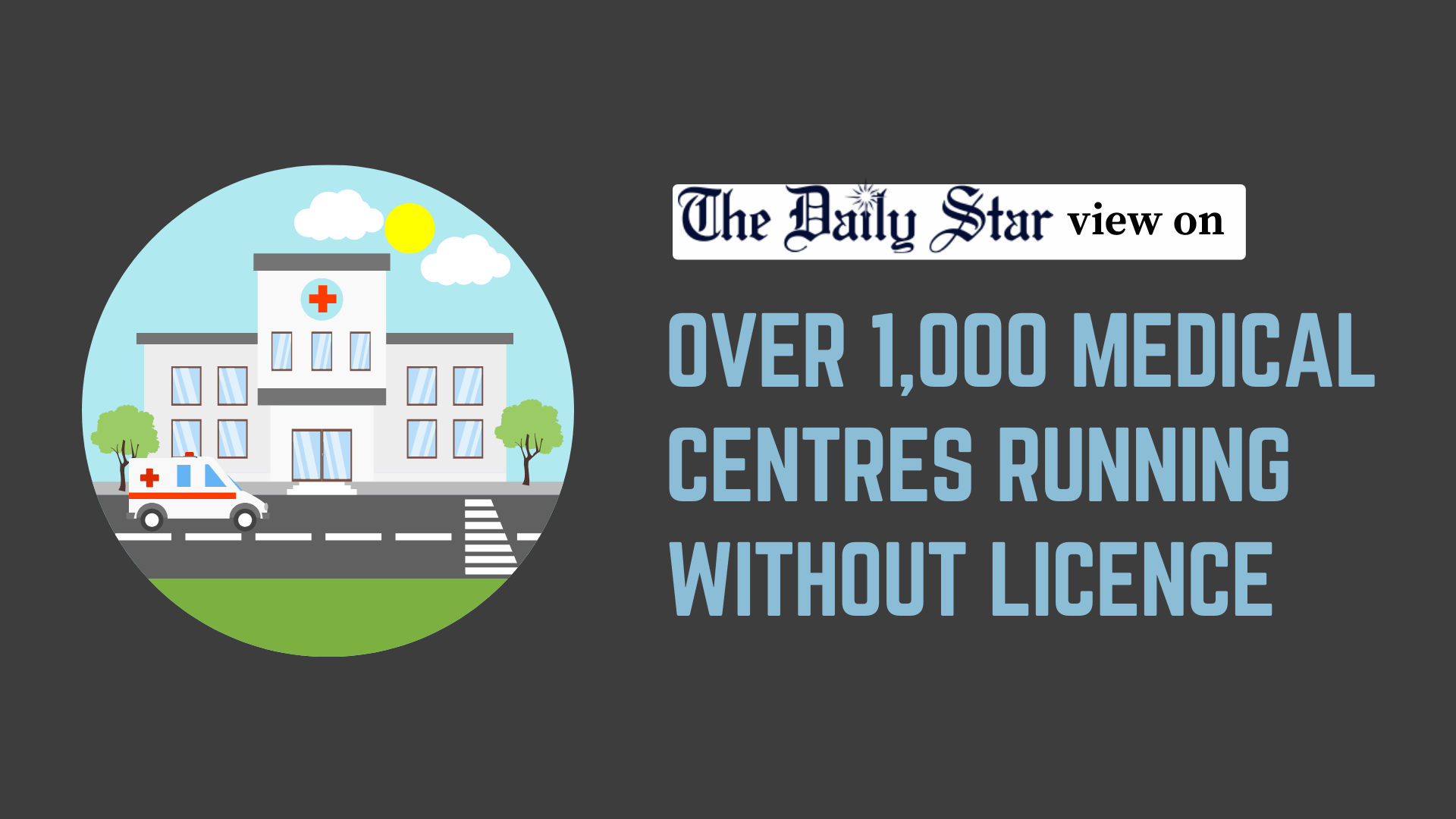Teacher crisis is hurting medical colleges

It is alarming to learn of the crises that continue to plague government medical colleges across the country. According to a report by Prothom Alo, some of these colleges lack their own hospitals. The lack of importance given to fundamental courses as opposed to clinical subjects, which hold allure for many students given their professional prospects, is another issue. But one problem that dwarfs all others is the severe shortage of teachers, compromising not just the education of aspiring doctors but also the future of our healthcare system.
This is not a new phenomenon, nor are medical colleges the only ones to suffer from it. But its persistence through the years points to a systemic issue that needs urgent interventions. As per the latest estimate, 42 percent of teaching posts in the 37 government medical colleges remain vacant. While there are 5,920 teaching posts for basic and clinical subjects, only 3,461 are currently occupied. In the Cox's Bazar Medical College, for example, there are 42 vacant posts out of 95, with 12 out of the 15 professorial posts unfilled. With no hospital of its own, its students are also forced to travel to the district hospital for practical lessons twice a day, resulting in a significant loss of study time.
The wider ramifications of such problems cannot be overstated. The question is, why are the authorities allowing these to persist year after year? Apparently, it has something to do with a power struggle and lack of coordination among the officials of the Health Services Division and the Directorate General of Medical Education, leaving colleges understaffed and students underserved. The teacher issue also featured prominently in a recent conference attended by the health minister.
We hope that the authorities will take meaningful actions in this regard, including removing systemic barriers, allocating sufficient resources, and streamlining the process of teacher recruitment, retention and development. As an expert has suggested, they can also consider bringing properly educated upazila health officers to the colleges. Ensuring the integrity and quality of these colleges is of utmost importance.



 For all latest news, follow The Daily Star's Google News channel.
For all latest news, follow The Daily Star's Google News channel. 


Comments